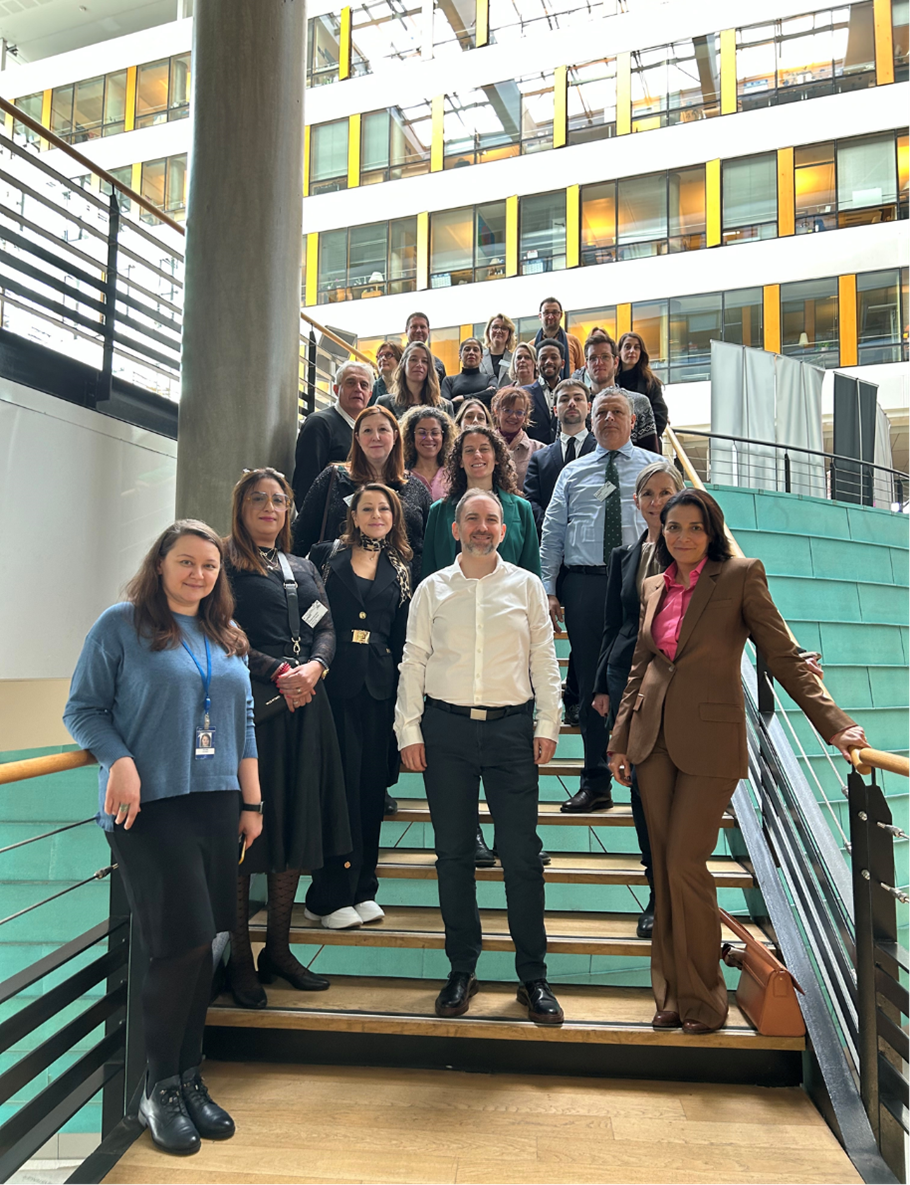On 20 February, the HELP course on "Ethics for judges, prosecutors and lawyers" was launched for French legal professionals. The event brought together 23 lawyers from the Grand Est Bar (France) and two lawyers from the southern Mediterranean region (one Tunisian and one Moroccan) as observers.
The event, held at the premises of the Council of Europe in Strasbourg, was organised in the framework of the EU-CoE project “Judicial Training on Rule of Law and Fundamental Rights”, funded under the European Union’s Justice Programme (2021-2027).
The day began with a warm welcome from Ana-Maria Telbis, Head a.i. of the Justice and Human Rights Training Division (CoE), and a general presentation of the HELP programme by Giulia Lo Presti, Project Manager, highlighting its objective and impact on the legal community.
The launch continued with insightful discussions and thematic panels, addressing critical aspects of ethics within the legal framework, as well as presenting various CoE tools and activities related to the profession of lawyers.
Isabelle Rihm, Vice-President of the Tribunal in Strasbourg and Judge for Liberties and Detention emphasised the crucial role of ethics in maintaining the independence and impartiality of the judiciary. Vanessa Aeby, Legal Officer at the Registry of the European Court of Human Rights, provided an insight into the resources developed by the Council of Europe, including HUDOC, Knowledge Sharing Platform (KS) and publications of the European Court of Human Rights. Phillippe Krantz, Legal Officer, and Julie Devys, Programme Manager, both from the Human Rights Directorate of the Secretariat of the European Committee of Legal Cooperation (CDCJ), discussed the Committee's work on the protection of lawyers. Chantal Gallant, Legal Officer of the Department for the Execution of Judgments of the European Court of Human Rights, explained the CoE’s role in supporting the execution of judgments, with a particular focus on cases involving France.
Valuable insights into the implementation of the national course were provided by Julien Martin, HELP National Tutor. This included a detailed presentation of the course page, the different modules and the final assignment.
The launch of the HELP course on Ethics is a significant step towards fostering a legal community that values integrity, independence and adherence to ethical standards. The participation of lawyers from France, Tunisia and Morocco, together with international experts, underlines the global commitment to ethical legal practice. The Council of Europe's HELP course on ethics is aimed at equipping professionals with the knowledge and tools necessary to successfully navigate the complex ethical issues they may face in their daily practice.
********************
The HELP course on “Ethics for Judges, Prosecutors and Lawyers” covers in an interactive way the key concepts and principles, the International and European (CoE and EU) framework as well as the relevant case-law of the European Court of Human Rights (ECtHR) and of the Court of Justice of the European Uni.on (CJEU). It is aimed at deepening the knowledge and understanding of professional
tools and at developing reflective skills, based on practical examples, to address ethical dilemmas in the performance of professional duties.
The HELP online course includes the main international standards for each profession (such as the Bangalore Principles), as well as, at CoE level, the standards and guidelines referenced in the European Commission for the Efficiency of Justice (CEPEJ) materials, the Venice Commission relevant opinions and Rule of Law Checklist, the opinions issued by the Consultative Council of European Judges (CCJE) and the Consultative Council of European Prosecutors (CCPE), as well as the relevant case-law of the ECtHR. At EU level, it includes the relevant EU framework, including Article 47 of the EU Charter of Fundamental Rights and the case-law of the CJEU, as well as references to the EU initiatives to strengthen the rule of law, such as the Rule of Law reports and the specific Rule of Law Mechanism.
The HELP online course on Ethics for Judges, Prosecutors and Lawyers is also available in self-learning format (open and self-paced access), in 21 languages, has a duration of 9 hours and upon completion users can generate their electronic Statement of Accomplishment. Anyone already having a HELP account can access it at this link. Those new to HELP can first create a HELP account, it only takes 2 minutes.





